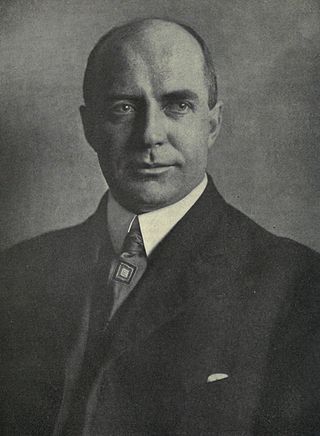Related Research Articles

Social norms are shared standards of acceptable behavior by groups. Social norms can both be informal understandings that govern the behavior of members of a society, as well as be codified into rules and laws. Social normative influences or social norms, are deemed to be powerful drivers of human behavioural changes and well organized and incorporated by major theories which explain human behaviour. Institutions are composed of multiple norms. Norms are shared social beliefs about behavior; thus, they are distinct from "ideas", "attitudes", and "values", which can be held privately, and which do not necessarily concern behavior. Norms are contingent on context, social group, and historical circumstances.
A role is a set of connected behaviors, rights, obligations, beliefs, and norms as conceptualized by people in a social situation. It is an expected or free or continuously changing behavior and may have a given individual social status or social position. It is vital to both functionalist and interactionist understandings of society. Social role theory posits the following about social behavior:
- The division of labour in society takes the form of the interaction among heterogeneous specialized positions, we call roles.
- Social roles included appropriate and permitted forms of behavior and actions that recur in a group, guided by social norms, which are commonly known and hence determine the expectations for appropriate behavior in these roles, which further explains the place of a person in the society.
- Roles are occupied by individuals, who are called actors.
- When individuals approve of a social role, they will incur costs to conform to role norms, and will also incur costs to punish those who violate role norms.
- Changed conditions can render a social role outdated or illegitimate, in which case social pressures are likely to lead to role change.
- The anticipation of rewards and punishments, as well as the satisfaction of behaving pro-socially, account for why agents conform to role requirements.

In the fields of sociology, social ontology, and communication theory, social constructionism proposes that certain ideas about physical reality arise from collaborative consensus, instead of the pure observation of said physical reality. The theory of social constructionism proposes that people collectively develop the meanings of social constructs. Social constructionism has been characterised as neo-Marxian theory and as a neo-Kantian theory, proposing that social constructionism replaces the transcendental subject with a societal concept that is descriptive and normative.

Symbolic interactionism is a sociological theory that develops from practical considerations and alludes to humans' particular use of shared language to create common symbols and meanings, for use in both intra- and interpersonal communication. According to Macionis, symbolic interactionism is "a framework for building theory that sees society as the product of everyday interactions of individuals". In other words, it is a frame of reference to better understand how individuals interact with one another to create symbolic worlds, and in return, how these worlds shape individual behaviors. It is a framework that helps understand how society is preserved and created through repeated interactions between individuals. The interpretation process that occurs between interactions helps create and recreate meaning. It is the shared understanding and interpretations of meaning that affect the interaction between individuals. Individuals act on the premise of a shared understanding of meaning within their social context. Thus, interaction and behavior is framed through the shared meaning that objects and concepts have attached to them. From this view, people live in both natural and symbolic environments.

In micro-sociology, interactionism is a theoretical perspective that sees social behavior as an interactive product of the individual and the situation. In other words, it derives social processes from social interaction, whereby subjectively held meanings are integral to explaining or understanding social behavior.
Impression management is a conscious or subconscious process in which people attempt to influence the perceptions of other people about a person, object or event by regulating and controlling information in social interaction. It was first conceptualized by Erving Goffman in 1959 in The Presentation of Self in Everyday Life, and then was expanded upon in 1967.

Lee David Ross was a Canadian-American professor. He held the title of the Stanford Federal Credit Union Professor of Humanities and Sciences at Stanford University and was an influential social psychologist who studied attributional biases, shortcomings in judgment and decision making, and barriers to conflict resolution, often with longtime collaborator Mark Lepper. Ross was known for his identification and explication of the fundamental attribution error and for the demonstration and analysis of other phenomena and shortcomings that have become standard topics in textbooks and in some cases, even popular media. His interests included ongoing societal problems, in particular protracted inter-group conflicts, the individual and collective rationalization of evil, and the psychological processes that make it difficult to confront societal challenges. Ross went beyond the laboratory to involve himself in conflict resolution and public peace processes in the Middle East, Northern Ireland, and other areas of the world.
Herbert George Blumer was an American sociologist whose main scholarly interests were symbolic interactionism and methods of social research. Believing that individuals create social reality through collective and individual action, he was an avid interpreter and proponent of George Herbert Mead's social psychology, which he labeled symbolic interactionism. Blumer elaborated and developed this line of thought in a series of articles, many of which were brought together in the book Symbolic Interactionism. An ongoing theme throughout his work, he argued that the creation of social reality is a continuous process. Blumer was also a vociferous critic of positivistic methodological ideas in sociology.

In criminology, differential association is a theory developed by Edwin Sutherland proposing that through interaction with others, individuals learn the values, attitudes, techniques, and motives for criminal behavior.
In sociology, social action, also known as Weberian social action, is an act which takes into account the actions and reactions of individuals. According to Max Weber, "Action is 'social' insofar as its subjective meaning takes account of the behavior of others and is thereby oriented in its course."

William Isaac Thomas was an American sociologist, understood today as a key figure behind the theory of symbolic interactionism.

A sociological theory is a supposition that intends to consider, analyze, and/or explain objects of social reality from a sociological perspective, drawing connections between individual concepts in order to organize and substantiate sociological knowledge. Hence, such knowledge is composed of complex theoretical frameworks and methodology.
Self-monitoring, a concept introduced in the 1970s by Mark Snyder, describes the extent to which people monitor their self-presentations, expressive behavior, and nonverbal affective displays. Snyder held that human beings generally differ in substantial ways in their abilities and desires to engage in expressive controls. Self-monitoring is defined as a personality trait that refers to an ability to regulate behavior to accommodate social situations. People concerned with their expressive self-presentation tend to closely monitor their audience in order to ensure appropriate or desired public appearances. Self-monitors try to understand how individuals and groups will perceive their actions. Some personality types commonly act spontaneously and others are more apt to purposely control and consciously adjust their behavior. Recent studies suggest that a distinction should be made between acquisitive and protective self-monitoring due to their different interactions with metatraits. This differentiates the motive behind self-monitoring behaviours: for the purpose of acquiring appraisal from others (acquisitive) or protecting oneself from social disapproval (protective).
Harold Kelley was an American social psychologist and professor of psychology at the University of California, Los Angeles. His major contributions have been the development of interdependence theory, the early work of attribution theory, and a lifelong interest in understanding close relationships processes. A Review of General Psychology survey, published in 2002, ranked Kelley as the 43rd most cited psychologist of the 20th century.

In sociology, social psychology studies the relationship between the individual and society. Although studying many of the same substantive topics as its counterpart in the field of psychology, sociological social psychology places relatively more emphasis on the influence of social structure and culture on individual outcomes, such as personality, behavior, and one's position in social hierarchies. Researchers broadly focus on higher levels of analysis, directing attention mainly to groups and the arrangement of relationships among people. This subfield of sociology is broadly recognized as having three major perspectives: Symbolic interactionism, social structure and personality, and structural social psychology.
Social perception is the study of how people form impressions of and make inferences about other people as sovereign personalities. Social perception refers to identifying and utilizing social cues to make judgments about social roles, rules, relationships, context, or the characteristics of others. This domain also includes social knowledge, which refers to one's knowledge of social roles, norms, and schemas surrounding social situations and interactions. People learn about others' feelings and emotions by picking up information they gather from physical appearance, verbal, and nonverbal communication. Facial expressions, tone of voice, hand gestures, and body position or movement are a few examples of ways people communicate without words. A real-world example of social perception is understanding that others disagree with what one said when one sees them roll their eyes. There are four main components of social perception: observation, attribution, integration, and confirmation.
In control theory, affect control theory proposes that individuals maintain affective meanings through their actions and interpretations of events. The activity of social institutions occurs through maintenance of culturally based affective meanings.

The sociology of emotion applies sociological theorems and techniques to the study of human emotions. As sociology emerged primarily as a reaction to the negative effects of modernity, many normative theories deal in some sense with emotion without forming a part of any specific subdiscipline: Karl Marx described capitalism as detrimental to personal 'species-being', Georg Simmel wrote of the deindividualizing tendencies of 'the metropolis', and Max Weber's work dealt with the rationalizing effect of modernity in general.
Impression formation in social psychology refers to the processes by which different pieces of knowledge about another are combined into a global or summary impression. Social psychologist Solomon Asch is credited with the seminal research on impression formation and conducted research on how individuals integrate information about personality traits. Two major theories have been proposed to explain how this process of integration takes place. The Gestalt approach views the formation of a general impression as the sum of several interrelated impressions. As an individual seeks to form a coherent and meaningful impression of another individual, previous impressions significantly influence the interpretation of subsequent information. In contrast to the Gestalt approach, the cognitive algebra approach asserts that individuals' experiences are combined with previous evaluations to form a constantly changing impression of a person. A related area to impression formation is the study of person perception, making dispositional attributions, and then adjusting those inferences based on the information available.
The psychology of social class is a branch of social psychology dedicated to understanding how social class affects individual's thoughts, feelings, and behaviors. While social class has long been a subject of analysis in fields such as sociology, political science, anthropology, medicine and epidemiology, its emergence within the field of psychology is much more recent.
References
- ↑ The child in America: Behavior problems and programs. W.I. Thomas and D.S. Thomas. New York: Knopf, 1928: 571–572
- ↑ The Unadjusted Girl. With Cases and Standpoint for Behavioral Analysis. W.I. Thomas. N.Y.: Evanston; London: Harper & Row, 1967: 42
- ↑ Social Behavior and Personality. Contribution of Thomas to Theory and Social Research. Edmond H. Volkart [ed.] N.Y.: Social Research Council, 1951: 14
- ↑ DeLamater, John D., and Daniel J. Myers, Social Psychology, 6th ed., 2007 (Belmont, CA: Thomson Wadsworth), pp. 227–228. ISBN 978-0-495-09336-7
- ↑ Thomas, William. "The Definition of the Situation," in Self, Symbols, and Society: Classic Readings in Social Psychology, Nathan Rousseau (ed), 2002 (Lanham, MD: Rowman & Littlefield), pp. 103–115. ISBN 978-0-7425-1631-1